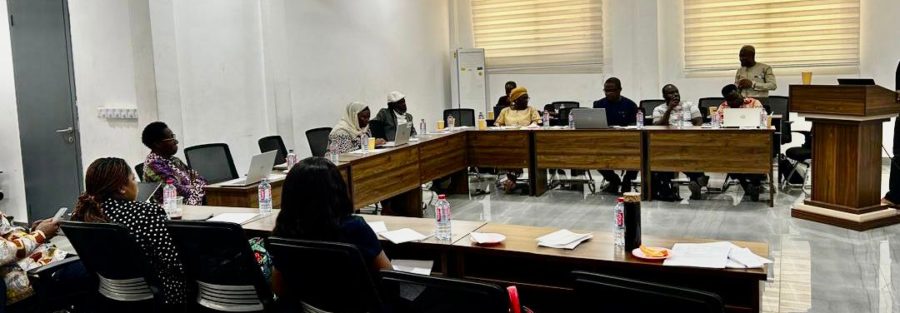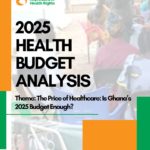Accra, April 16, 2025 — ARHR convened a dynamic multi-stakeholder meeting in Accra to co-create a comprehensive gender and intersectional framework to evaluate the Network of Practice (NOP) implementation within Ghana’s Primary Health Care (PHC) system.
Bringing together representatives from the Ghana Health Service (GHS), Alliance members, ARHR partners, Health Practitioners, and other key PHC actors, the meeting emphasized the critical role of inclusive dialogue in shaping effective, people-centered health policies. The engagement is part of ARHR’s ongoing commitment to promoting gender sensitive and responsive health care systems under its ‘Putting Women and Girls at the Centre of PHC’ initiative. The framework is to monitor and ensure that the NOP reflects the realities and needs of women, girls, and marginalized populations who often face systemic barriers to quality health care.
The session began with two key presentations that set the stage for the collaborative engagement. The first examined the current state of gender sensitivity and intersectionality in Ghana’s PHC landscape, highlighting entrenched disparities and untapped opportunities to embed equity in service delivery. The second presentation provided an in-depth look at the progress and challenges of the NOP implementation, offering insights into how the model is functioning across different health facilities and where gaps in inclusivity persist. The draft framework was presented to participants as part of the collaborative process, enabling them to contribute informed perspectives during the co-creation session.
Participants were then divided into breakout groups to review the draft framework. These smaller working group sessions fostered active participation, allowing participants to contribute experiences and insights from diverse backgrounds. Feedback focused on making the framework user-friendly, adaptable to local contexts, and robust enough to uncover systemic and structural issues often overlooked.
A key focus of the discussions was ensuring that the framework goes beyond gender to include intersecting factors such as age, disability, geographic location, and socioeconomic status. This intersectional lens is vital for understanding the full spectrum of barriers faced by underserved populations and for designing targeted interventions that leave no one behind.
Once finalized, the framework will function as an accountability mechanism and an advocacy tool. It will enable civil society, health managers, and policymakers to identify facility-level challenges, track progress, and make informed decisions on resource allocation and programme design. Ultimately, the framework will support evidence-based action to improve health outcomes and equity across Ghana’s PHC system.
In her remarks, ARHR’s Executive Director emphasized the importance of collaborative design and local ownership.
“For health systems to be truly equitable, they must be shaped by the voices of those they aim to serve. This framework is a step toward embedding fairness, dignity, and justice in the foundation of primary health care in Ghana through the NoP.”
The event also served as a platform to strengthen partnerships between government institutions, community-based organizations, and health and gender experts. These partnerships are expected to play a key role in the framework’s usage, ensuring its use becomes embedded in routine health system monitoring and evaluation.
ARHR reaffirms its dedication to fostering health equity by working with stakeholders to ensure Ghana’s health system is efficient, sustainable, inclusive, responsive, and just for all.



